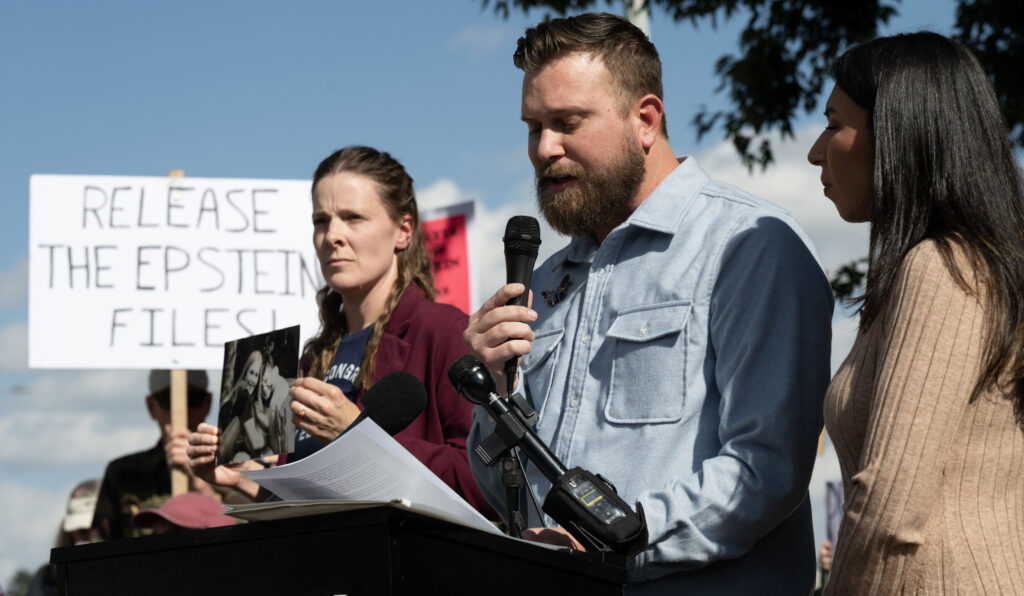Colorado lawmakers grapple with transgender issues, ridesharing, TABOR in the final days of session
Over the last few years, the most bitter battles have been fought between House Democrats and Republicans, with the latter walking out hours before the session ended last year, rather than vote on a property tax measure.
This year, that fight has shifted to the Senate over one bill, in particular, dealing with transgender issues. The measure won approval from a Senate committee early on Thursday morning.
House Bill 1312 classifies “deadnaming” and misgendering” as discriminatory acts under the Colorado Anti-Discrimination Act. Broadly speaking, “misgendering” means not using an individual’s preferred pronoun, while “deadnaming” refers to using transgender persons’ birth names instead of their preferred names.
The bill also prohibits courts from applying other state laws that authorize the removal of a child because their parent allowed them to receive “gender-affirming care.” The bill’s latest version deleted sections that would have required courts to consider “deadnaming” or “misgendering” as forms of “coercive control” in child custody cases and regarded the publication of a “deadname” as an act of discrimination.
Republican sources said they are prepared to debate the bill all the way to the last possible day for its passage.
A debate that goes past midnight on Tuesday would effectively kill the bill.
That could mean a debate of as many as four days, unless Democrats imposed limits, which is allowed under the rules.
That prospect doesn’t sit well with Sen. Jeff Bridges, D-Westminster, who noted during a Friday morning caucus meeting that those types of limitations are rare in the Senate and that he worries about their impact on the institution itself.
The Democratic sponsors of HB 1312 — Sens. Faith Winter of Westminster and Chris Kolker of Centennial — are hoping a 5 p.m. meeting with stakeholders could produce a deal that would resolve the conflict and, in effect, allow the dozens of bills remaining in the 2025 session to get to their final votes before the General Assembly adjourns, no later than midnight Wednesday.
Winter indicated during the caucus meeting that, if a deal were not reached at the 5 p.m. meeting, she’s prepared to walk away from the measure.
Senate Democrats caucused several times on Friday about the work ahead.
A brief discussion between Senate Majority Leader Robert Rodriguez and Senate Minority Leader Paul Lundeen did not produce an agreement, Rodriguez told his caucus.
Rodriguez said he is prepared to “call the question” on HB 1312 on Monday, a procedural move that would end debate but could lead Republicans to delay everything for the rest of the session.
Lundeen told Colorado Politics his caucus is prepared to use every tactic and tool at their disposal, particularly as it applies to the transgender measure.
As of 9 a.m. Friday, 165 bills await a final resolution, with 79 on the Senate’s agenda. That includes 16 Senate bills that are still awaiting final Senate action and five that haven’t completed committee work.
That’s not the only measure causing consternation in the final hours.
House Bill 1291 seeks to put more requirements transportation network companies — ridesharing firms, such as Uber and Lyft. That’s in the wake of an alleged sexual assault of a state lawmaker by a driver who borrowed someone’s Lyft credentials and who wasn’t legally authorized by the platform to drive.
The bill would require companies to run criminal history checks on their drivers every six months, prohibit people from driving who have committed certain offenses, such as assault, harassment, kidnapping, and ban account sharing or impersonating a driver.
HB 1291 passed the Senate Transportation and Energy Committee on April 22 but has been stuck on the calendar ever since, in part because Uber threatened to leave the state if the bill passed. Senate Democrats also noted “big” amendments proposed on Thursday from Uber and Lyft.
Additionally, Senate Democrats briefly discussed, in one of the Friday caucuses, the potential that a resolution that would direct the General Assembly to sue the state over the constitutionality of TABOR is unlikely to win approval this session.
The resolution, HJR 102,3 has been waiting on a House vote since April 7. But its senate co-sponsor, Sen. Lindsey Daugherty, D-Arvada, said Friday her understanding is that it doesn’t have the votes to pass the House and that it could come back next year.
That caused some Senate Democrats to question the wisdom of running the measure in an election year, led by Sen. Cathy Kipp, D-Fort Collins. She pointed out the problems that would arise if the measure was headed to the courts at the same time a ballot measure dealing with TABOR is likely to be in front of voters in the November 2026 election.
That measure is likely another Referendum C-type timeout on TABOR revenue limits, not a wholesale repeal of the constitutional amendment.











